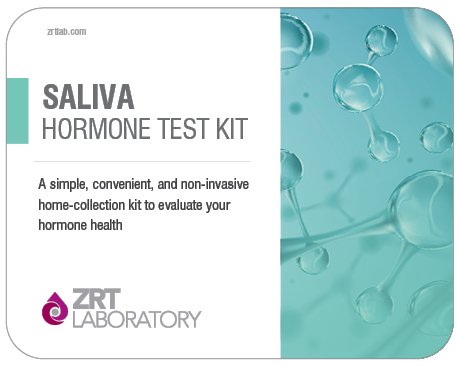Doctors: Interested in offering your patients compounded options for hormone therapy?
Connect with our hormone experts.

Author: Bob Brensel | President, Pharmacist | ScriptWorks
Bob Brensel, RPh, earned his Pharmacy Degree at University of the Pacific in Stockton, California in 1980. Former California Pharmacists Association’s Award Winner for Recognition of Outstanding Achievement in Compounding Pharmacy. Read More →
Addressing Menopause and Imbalances in Women’s Hormones
Women’s hormones play a crucial role in their physical, emotional, and mental well-being. From puberty to menopause, the ebb and flow of hormonal changes significantly influence a woman’s life.
In this blog, we will explore the intricate world of women’s hormones and, in particular, focus on menopause — a natural phase every woman experiences in her life.
Understanding Women's Hormones
Before delving into the topic of menopause, it’s essential to understand the key hormones that govern a woman’s reproductive system throughout her life:
- Estrogen: This primary female sex hormone is responsible for regulating the menstrual cycle, maintaining bone density, and supporting the health of reproductive organs.
- Progesterone: Working in tandem with estrogen, progesterone helps regulate the menstrual cycle and prepares the uterine lining for potential pregnancy.

- Testosterone: Often thought of as a male hormone, women also produce testosterone, albeit in smaller amounts. It contributes to libido and overall well-being.
- Follicle-Stimulating Hormone (FSH) and Luteinizing Hormone (LH): These hormones are crucial for ovulation and the regulation of the menstrual cycle.
- Thyroid Hormones: The thyroid gland produces hormones that control the body’s metabolism and energy levels, affecting a range of bodily functions, including menstruation.
Challenges and Considerations

Menopause is a natural biological process marking the end of a woman’s reproductive years. It typically occurs between the ages of 45 and 55, with an average age of 51. The journey to menopause encompasses three distinct stages:
- Perimenopause: This transitional phase can begin in a woman’s 30s or 40s. During perimenopause, hormone levels fluctuate, leading to irregular menstrual cycles, hot flashes, night sweats, mood swings, and other symptoms. Fertility diminishes, and women may experience changes in their sexual health.
- Menopause: Menopause is officially diagnosed when a woman has not had a menstrual period for 12 consecutive months. At this point, estrogen and progesterone levels significantly decrease, leading to various physical and emotional changes.
- Postmenopause: Postmenopause refers to the years after menopause. Many of the symptoms experienced during perimenopause begin to subside. However, the decline in estrogen levels can increase the risk of certain health conditions, such as osteoporosis and heart disease.
Challenges and Considerations
The hormonal changes associated with menopause can bring about a range of physical and emotional symptoms, including:
- Hot Flashes and Night Sweats: Sudden, intense feelings of warmth and sweating can disrupt daily life.
- Vaginal Dryness and Discomfort: Declining estrogen levels can lead to vaginal dryness, making sexual intercourse uncomfortable.

- Mood Swings and Irritability: Hormonal fluctuations can affect mood, leading to increased irritability, anxiety, and depression.
- Insomnia and Sleep Disturbances: Night sweats and mood swings can make it challenging to get a good night’s sleep.
Effects of Hormonal Imbalance
The right balance of women’s hormones is vital to overall health. But in menopause, when levels are dropping, a deficiency of one hormone can trigger a relative excess of another and result in common imbalances such as:
- Estrogen Dominance or Low Progesterone: Results in mood swings, migraines, fat gain in hips and thighs
- Low Estrogen or Fluctuations of Estrogen: Triggers hot flashes, night sweats, palpitations, foggy thinking, memory lapse & vaginal dryness
- Low Testosterone or DHEA: Leads to decreases in bone or muscle mass, metabolism, energy, strength, stamina, exercise tolerance & libido
- High Cortisol: Results in insomnia, anxiety, sugar cravings, feeling tired but wired & increased belly fat
- Low Cortisol: Causes chronic fatigue, low energy, food and sugar cravings, poor exercise tolerance or recovery & low immune reserves
- Neurotransmitter Imbalance: Changes in estrogen and progesterone levels can impact neurotransmitter levels. For instance, a drop in estrogen can result in a drop in serotonin.
- Thyroid Imbalance: Changes in estrogen levels can lead to thyroid symptoms like slowed metabolism and always feeling cold. In fact, many women experiencing menopause will be diagnosed with hypothyroidism.
- Low Vitamin D: Sufficient levels of Vitamin D, estrogen and testosterone are important for maintaining bone health in the menopause years.
Addressing Hormone Imbalance with Saliva Testing
While menopause is a natural process, there are several ways to manage its symptoms and promote overall well-being. If you are looking for options in addressing potential hormone imbalance, one option is to speak to a ScriptWorks Pharmacist about Saliva Testing.
Saliva testing has gained popularity among practitioners of integrative and functional medicine. It is a non-invasive collection method where patients collect their saliva in plastic tubes to measure hormones like cortisol, estrogen, progesterone, DHEA sulfate, and testosterone. Saliva is an excellent way to assess hormone levels.
Reasons Patients may Choose Saliva Testing for Hormones
- You are feeling symptoms of menopause and would like an assessment.
- You have been under a lot of stress and wonder if your symptoms are related to it.
- You already had blood (serum) testing at your last doctor appointment, and your levels were normal, but you still feel symptoms.
- You may not have a doctor appointment scheduled anytime soon and are curious about your levels.
- You are using hormone replacement but still do not feel like yourself.
- You last had a test over six months ago and would like a repeat after adjusting lifestyle, exercise, supplements, and hormones.
- Saliva testing also allows for multiple collection times throughout one day, which is especially beneficial when measuring the stress hormone cortisol.
Female Saliva Profile III
Measures Estradiol (E2), Progesterone (Pg), Testosterone (T), Dhea S (DS) & Cortisol 4x throughout the day.
(Other tests only measure cortisol once or twice per day.)

We’re here to guide you through menopause.
Women’s hormones and menopause are integral parts of a woman’s life journey. While the hormonal changes associated with menopause can bring challenges, understanding and addressing them may lead to a more comfortable and fulfilling transition.
With the right support and healthcare, women can navigate this phase with grace and embrace the next chapter of their lives. ScriptWorks is here to offer support during this transition for both patient and provider.

